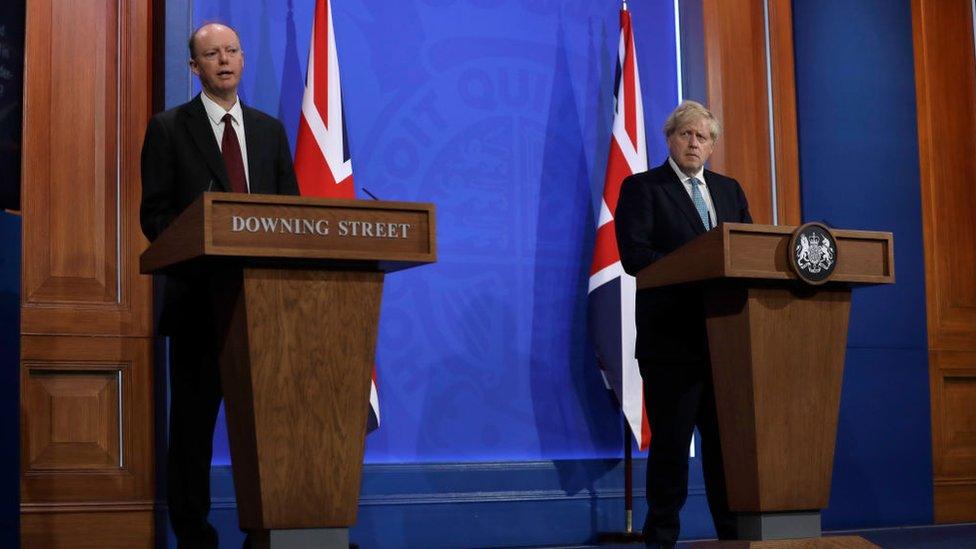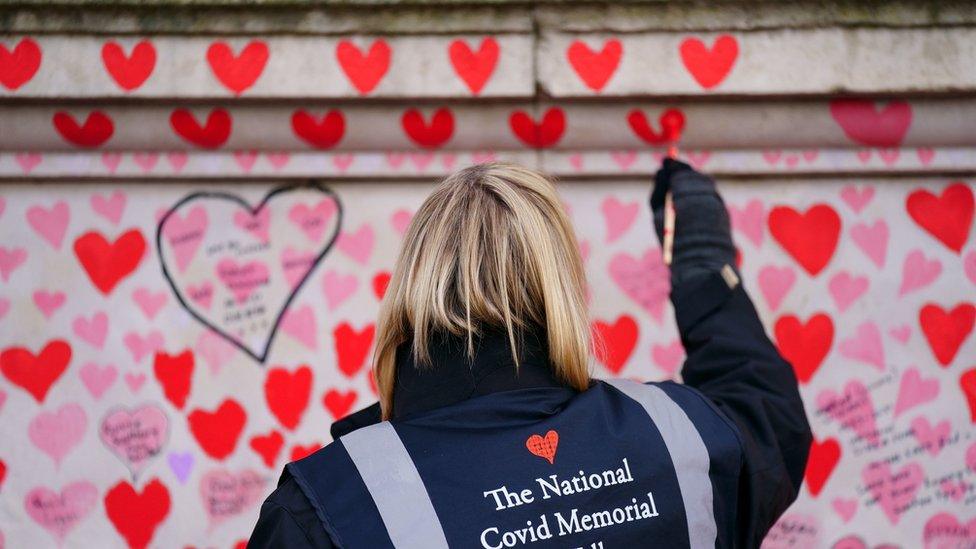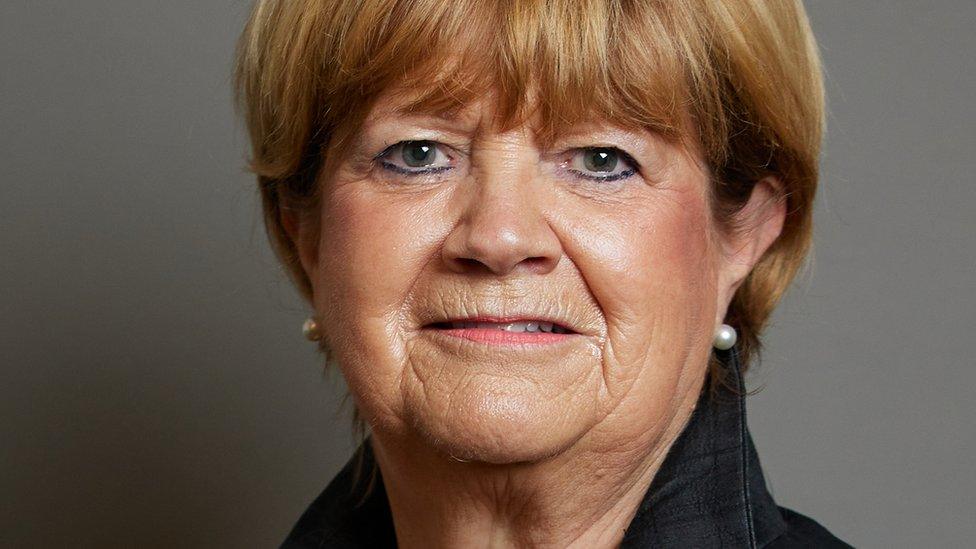Covid: Boris Johnson WhatsApp messages requested by inquiry
- Published

The Covid public inquiry has asked to see Boris Johnson's WhatsApp messages during his time as prime minister as part of its probe into decision-making.
Counsel for the inquiry, Hugo Keith KC, said the messages had been requested alongside thousands of other documents.
He said a major focus of this part of the inquiry was understanding how the "momentous" decisions to impose lockdowns and restrictions were taken.
The revelations came as he set out the details of how this module will work.
The inquiry is being broken down into different sections - or modules as they are being called.
The preliminary hearing for module one, looking at how well prepared the UK was, took place last month.
Monday marked the start of the preliminary hearing for module two, which is looking at the political decision-making.
Mr Keith said this allowed the inquiry to take a "targeted approach".
He said it would look at whether lives could have been saved by introducing an earlier lockdown at the start of 2020.
But he also said it would assess the quality of advice ministers received, and whether too much weight was given to modelling.
Covid impact 'felt for decades to come'
In his opening address, Mr Keith said the crisis placed "extraordinary levels of strain" on the UK's health, care, financial and educational systems and businesses, on top of individual bereavements.
He said its impact will be felt for "decades to come", adding: "The pandemic has led to financial and economic turmoil.
"It has disrupted economies and education systems, and put unprecedented pressure on national health systems. Jobs and businesses have been destroyed and livelihoods taken away.
"The disease has caused widespread and long-term physical and mental illness, grief and untold misery.
"Its impact will be felt worldwide, including in the United Kingdom, for decades to come."
The identity of the core participants for this module were also unveiled.
These are the individuals and organisations which will have enhanced rights to see documents and make submissions.
Alongside government departments, they will also include a host of groups representing some of the most vulnerable in society, including people with disabilities, children, women at risk of domestic violence and those who developed "long Covid".
Mr Keith said the pandemic "reached out and affected almost every person" but its impact was not equally felt.
He said it was important to assess whether the risks these groups faced was properly taken into account.
A further preliminary hearing for the module will take place in early 2023, with public hearings starting in the summer. These are scheduled to last for about eight weeks.
- Published24 June 2022

- Published5 July 2023

- Published11 March 2022

- Published11 March 2022

- Published15 December 2021
